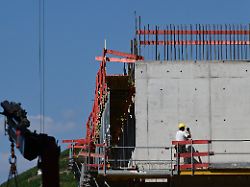630,000 vacancies
Shortage of skilled workers will climb to record levels in 2022
04/16/2023, 08:15 am
The shortage of skilled workers in Germany is higher than ever. According to a study, several hundred thousand jobs were unfilled in 2022. In some sectors, 90 percent of the vacancies could not be filled.
According to a study, the shortage of skilled workers in Germany reached a new record level in 2022, despite the strain on the economy caused by the Ukraine war and high inflation. Mathematically, more than 630,000 vacancies for skilled workers could not be filled last year because there were no suitably qualified unemployed people available nationwide, reported the competence center for securing skilled workers of the employer-related Institute of German Business.
This is the largest shortage of skilled workers since the observation period began in 2010. According to the study, the bottlenecks were particularly pronounced in the areas of health, social affairs, teaching and education, as well as in the areas of construction, architecture, surveying and building technology, where arithmetically six out of ten vacancies are not filled could become. However, the shortage of skilled workers was also above average in the fields of natural sciences, geography and IT.
According to the study, the shortage of skilled workers in the commercial services, goods trade, sales, hotel and tourism sectors almost tripled last year. Here, arithmetically, a good three out of ten vacancies could not be filled in 2022. However, the strong increase in this area can also be explained by a catch-up effect after the sharp slump in the wake of the corona pandemic.
Basically, according to the study, the following rule currently applies on the labor market: the higher the required qualification, the more difficult it is to fill vacancies. Experts with a university degree in the fields of computer science, electrical engineering, construction planning and supervision were particularly sought after. Here, according to the study, nine out of ten vacancies were unemployed with appropriate qualifications.
In mid-March, Ifo President Clemens Fuest wrote in an essay that companies could counteract the problem with higher wages and better working conditions. The economist explained that higher wages mean that workers are increasingly deployed where they are more productive. Wages and working conditions improved particularly where they were too low from a market perspective. If employees with low incomes benefit disproportionately, inequality also decreases.
